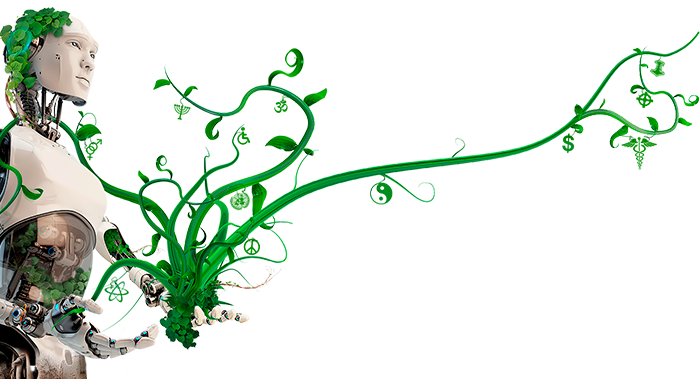live event based on live contributions

Oliver Schürer is a researcher, curator, and author as well as senior scientist and deputy director at the Institute for Architecture Theory and Philosophy of Technology at the Vienna University of Technology. To conduct transdisciplinary research on the relations and effects of social robotics and social AI in life worlds, he founded the research group H.A.U.S. in 2014. www.attp.tuwien.ac.at/oliver H.A.U.S. (Humanoids in Architecture and Urban Spaces) is a group of experts from automation technology, architecture, computer science, AI research, human-robot interaction, performance, philosophy, psychology and dance, doing transdisciplinary research by means of science and art. www.h-a-u-s.org

Contemporary dancer, choreographer and dance teacher Eva-Maria Kraft researches and teaches on topics such as perception, presence, transparency, immersion and communication and their implementation in motion, in her studio RAUM für TANZ in Vienna and abroad. Current artistic works deal with realtime composition of movement and performances with humanoid robots.

Helena Frijns is a Human-Robot Interaction researcher. She is currently working on her PhD on the design of interactions with social robots at Vienna University of Technology. Her research interests include interaction design for Human-Robot Interaction, interaction and communication models, and cognitive robotics.

Darja Stoeva received the MSc degree in Computer Vision and Robotics (VIBOT) in 2018. She is currently a PhD researcher at the University of Technology in Vienna, as a part of the Doctoral College TrustRobots, investigating the functionalities of interactional patterns in human-robot interaction expressed through body language as part of nonverbal communication, concentrating on body motion, postures, and gestures.

Thomas A. Pichler, Instruments: Bass, cellare, guitar, synthesizers. Played in numerous bands and projects Current:
de.m.wikipedia.org/wiki/Thomas_Pichler_(Künstler) www.okabre.com
Experimental, transdisciplinary research on co-creation of sociocultural places and situations by interaction of dancer, musician, roboticists, robot, and the audience.
Transformations triggered by robotic technologies are intended to lead to robot cultures. Actualised by their human-like shape, motions and behaviours social humanoid robots have the largest potential of cultural implications for an individual. Due to the pandemic with it’s plea for “social distancing” transformations started to develop towards negative cultural values for many. The workshop invites to explore/test behaviours of social and physical distance considering proxemics, kinesics, cloud-computing, situatedness, intimacy, privacy, and audience topics of human-robot relations. (Details www.h-a-u-s.org)
